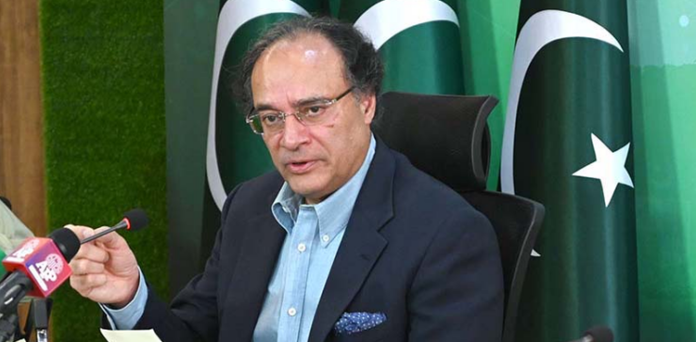Finance Minister Muhammad Aurangzeb on Monday unveiled the progress of major reforms in Pakistan’s tax, energy, and pension systems, designed to ensure long-term economic stability. Speaking alongside FBR Chairman Rashid Mahmood Langrial, Energy Minister Awais Leghari, and IT Minister Shaza Fatima, Aurangzeb emphasized that the reforms reflect a shift from short-term measures to sustainable structural changes.
The government’s reform agenda aims to consolidate recent economic gains and enhance macroeconomic stability. Aurangzeb noted that international credit rating agencies have recognised Pakistan’s improving economic outlook, and the recent staff-level agreement with the IMF further confirmed progress.
FBR Chairman Rashid Mahmood Langrial announced that tax collection and compliance have improved significantly, with income tax returns increasing by 18%, bringing the total number of taxpayers to 5.9 million. The FBR also increased the tax-to-GDP ratio by 1.5% for the first time, aiming to raise it to 18% within the next three to four years. Langrial stressed that no additional taxes are needed, as the FBR focuses on better compliance and institutional coordination.
Energy Minister Awais Leghari outlined reforms in the energy sector, including the government’s decision to stop directly purchasing electricity, calling it the “biggest energy reform in 20 years.” He reported that electricity prices have been reduced by Rs10.5 per unit over the past 18 months, with further relief measures such as a three-month package offering power at Rs26 per unit for industries. Leghari also noted the auction of 17 loss-making plants, raising Rs48 billion for the government and Rs9 billion for the private sector. The government aims to eliminate circular debt in the long term.
The government is also focusing on pension system reforms and other institutional changes to improve the efficiency of state-run entities. These efforts are part of a broader strategy to stabilize the economy and ensure sustainable growth.
The reforms are designed to address long-standing inefficiencies and ensure that Pakistan’s economy remains on a stable growth trajectory.
Discover more from Brackly News
Subscribe to get the latest posts sent to your email.



